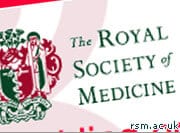Opposition to legalising assisted suicide remains strong, according to the results of a public debate hosted by the Royal Society of Medicine (RSM).
The debate, which was open to doctors and the general public, was the culmination of a day long conference, and it revealed that 60 per cent of those in attendance were opposed to any relaxation of the law.
Pro-life campaigners used the day to warn that any relaxation of the law on assisted suicide would expose vulnerable people to danger.
Fearful
Baroness Campbell of Surbiton, a prominent disability rights campaigner, cautioned: “Disabled people are fearful that when it becomes an option, it will gain a credibility that will erode the resolve of many people experiencing personal difficulties.
“Not only will it enter our heads, it will also enter the heads of our family and our friends and ultimately I’m afraid those who hold the purse strings.
“How much more convenient for all, if the turkeys see voting for Christmas as exercising personal choice?”
Killed
Her concerns were echoed by Professor David Jones, Director of bioethics at St Mary’s University College in Twickenham, who warned that legalising assisted suicide would inevitably lead to people being killed against their will.
Just 38 per cent of the attendees favoured a change in the law, and two per cent abstained from voting.
However, assisted suicide advocates also used the conference to call for a change in the law.
Tragedy
Dr Ann McPherson, who is terminally ill with pancreatic cancer, delivered a video message to the conference.
She said: “I know recently a palliative care doctor has said that every suicide is a tragedy. I don’t agree with that.
“I think that assisted dying for someone who is terminally ill may be a celebration, it shouldn’t be seen as a tragedy.”
Subjected
She added: “I don’t want to go somewhere like Switzerland, to Dignitas, to be able to die with dignity. I want to have the option of being able to be in my own home, surrounded by my family and friends, if that’s what I want and how it happens.”
Earlier this year it was revealed that terminally ill patients in Belgium are being subjected to euthanasia without their consent.
A study, published in the Canadian Medical Association Journal (CMAJ), suggested that almost half of Belgium’s euthanasia deaths may be carried out on patients who had not asked for their lives to be ended.
Euthanasia
The study revealed that 248 nurses, representing almost a fifth of the nurses interviewed, had cared for euthanasia patients.
And nearly 50 per cent of these, some 120 nurses, had been involved in killing patients without their “explicit request”.


